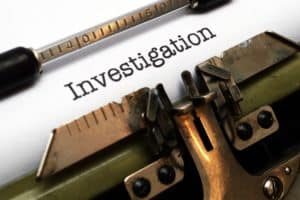
The True Cost of Fraud in Workers’ Compensation
Fraud in workers’ compensation is not a victimless crime. It should never be thought of as something that happens; nothing can be done to stop it. The bottom line is everyone pays the price when it occurs. Proper training and taking the time to detect it can pay dividends.
- According to the Insurance Crime Bureau, the actual cost of fraud in workers’ compensation is at least $7.2 billion per year;
- Everyone pays the price for fraud. This includes the injured employees, employers, insurance carriers; and
- While roughly 5% of all workers’ compensation claims are fraud-related, the “fraud tax” (cost of paying on fraudulent claims) limits the ability of workers’ compensation insurance carriers to settle legitimate matters.
Now is the time to get serious about limiting workers’ compensation claims fraud. Fraud can be better detected by developing a special unit to educate interested stakeholders on how fraud impacts them, encouraging people to be proactive in reporting it, and taking the lead on fraud detection.
Click Link to Access Free PDF Download
“The 5Cs to Taking a Bulletproof Injured Worker Recorded Statement”
Roles of the Special Investigation Unit
There are many roles for members of a special investigation unit on fraud detection. People involved in this unit should have law enforcement, accounting, and/or criminal justice education to better help them with investigation techniques that work.
A director should also lead this unit with access to upper management. Someone who can influence others is also needed to best direct the unit and make an immediate impact. Roles and responsibilities must include:
- Develop a program often from scratch to establish goals and objectives of a program;
- Best educate people and influence positive behaviors when it comes to the detection and reporting of fraud;
- Training other interested stakeholders on best practices and creating posters and other materials on a company’s anti-fraud policies, procedures, and philosophy;
- Coordinate with other parties such as third-party administrators, defense counsel, employer representatives, and law enforcement agencies; and
- Work directly with the claim team to identify “red flags” to best focus limited resources on fraud prevention.
Now is the time to develop a special unit dedicated to fraud prevention.
Impactful Training is Crucial
Training related to fraud is often incorporated into a broader annual training for employees within an organization. This problem is downplaying the issue’s significance and allowing people to forget about it. Successful training on anti-fraud efforts needs to be ongoing to make an impact.
- Include training on fraud during the onboarding process for all new employees;
- Require all employees to annually sign a statement regarding their familiarity with how to identify fraud and how to report it; and
- Discuss issues concerning fraud at weekly team meetings. Provide examples of fraud and how to detect it.
Any anti-fraud unit within a claims organization or third-party administrator can also discuss the issue of fraud when visiting their member organizations. Issues of importance that can be discussed regularly include:
- Prepare information on how to foster an environment that proactively seeks out fraud and shuts it down;
- Work with the claim management team to detect fraud during recorded statements. Information can also be shared with defense counsel that they can employ when taking the deposition of the injured employee;
- Outline tips on when and how to effectively use surveillance. Ethically searching social media posts is a must in every claim; and
- Provide all interested stakeholders information on reporting fraud to the claim team and law enforcement.
It is crucial to evaluate the effectiveness of anti-fraud efforts regularly. Skeptically question everything and have the willingness to make a change.
Conclusions
Creating a special investigation unit directed at fraud can be dividends to any workers’ compensation program. The most effective programs will seek to develop a program that includes education and partnerships with people from suitable backgrounds. It must be evaluated regularly to ensure it is providing the right results.

Contact: mstack@reduceyourworkerscomp.com.
Workers’ Comp Roundup Blog: http://blog.reduceyourworkerscomp.com/
©2022 Amaxx LLC. All rights reserved under International Copyright Law.
Do not use this information without independent verification. All state laws vary. You should consult with your insurance broker, attorney, or qualified professional.












 Long COVID in Workers Compensation: A First Look
Long COVID in Workers Compensation: A First Look 
